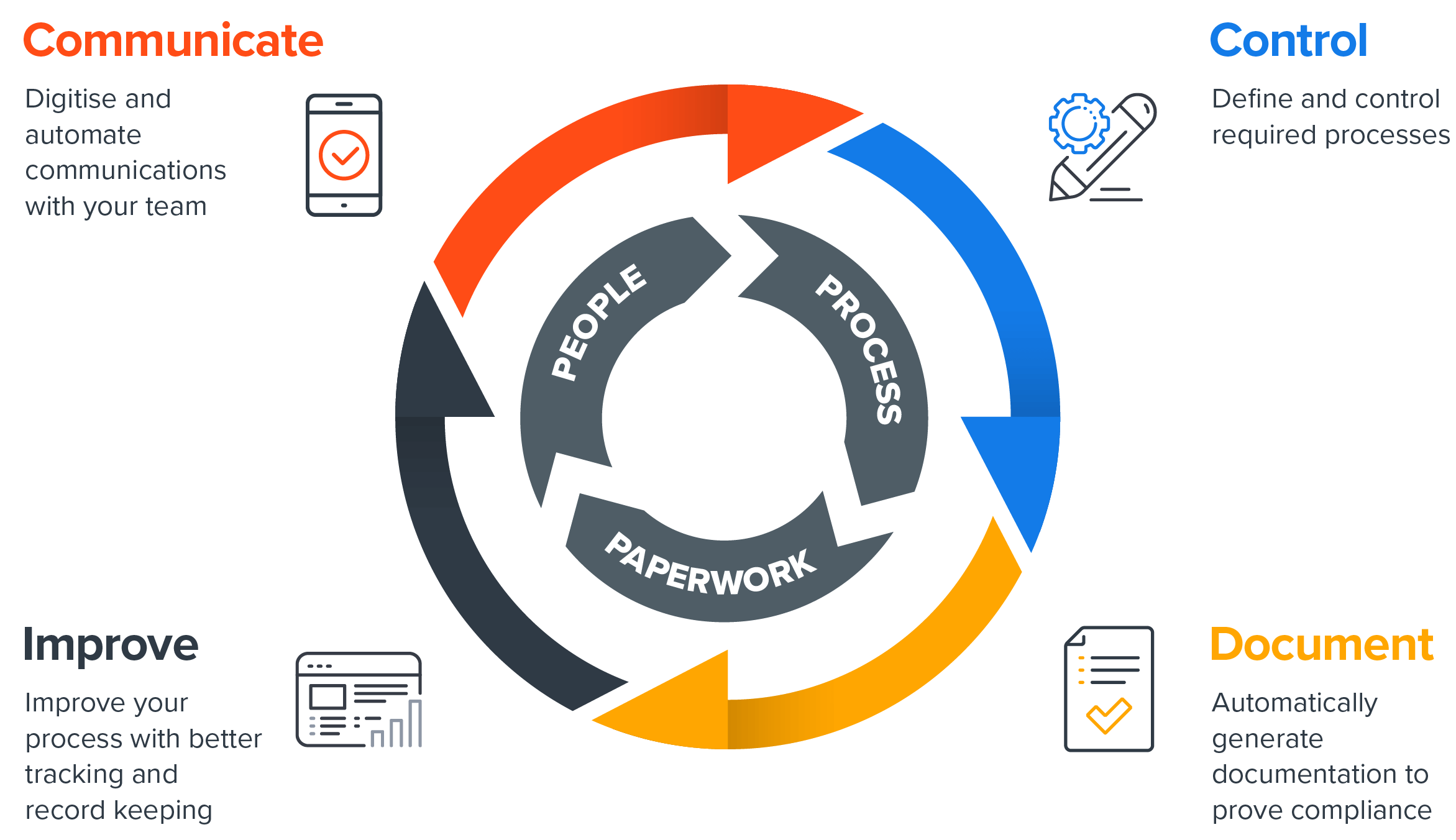Facilities Management compliance is a huge topic that covers a growing range of statutory and regulatory areas. But can these different operational risks be bought under control through a single, CAFM solution?
In their major study of FM compliance, the property consultancy group JLL outlined 7 major areas of compliance risk that Facilities Managers now face:
1. Safety: Maintaining equipment and facilities to required standards.
2. Labour: Ensuring your people are properly qualified and carrying out duties as required.
3. Finance: Ensuring financial transparency across supplier relationships.
4. Security: Handing confidential information (GDRP, ISO 27001).
5. Data: Demonstrating compliance through reporting.
6. Contractual: Controlling and maintaining legal documentation.
7. Ethical: Ensuring transparency and accountability across your operations.
These are wide-ranging and, often, intimidating compliance areas which reflect the increasing legal and regulatory jeopardy an FM team can find themselves in:
1. Safety
At a fundamental level compliance is all about ensuring the safety of the people who use your facilities. The ultimate risk is that your facilities or equipment will fail, causing injury or death to those using or maintaining them. These risks are contained by adhering to the standards and regulations imposed by public and professional bodies. Maintaining facilities so they meet these standards requires you to inspect and maintain them in particular ways at specified intervals, continually managing risk and demonstrating you have done so.
Different statutory and regulatory compliance processes help you control the risk of injury and death in key areas such as:
- Fire
- Electrical
- Gas
- Water
- Air
- Asbestos
- Hazardous waste handling
These will require:
- Trained/qualified individuals to monitor/maintain equipment
- Permits to Work & Risk Assessments & Method Statements to be carried out and documented
- Regular inspection and maintenance regimes to be implemented
- Processes and systems to be regularly audited
Those in specialist sectors such as healthcare may have even more regulation attached to their facility and equipment management.
For this, you need accountability and control across your workforce.
2. Labour
Questions you’ll need answers for include:
- Are you employing the right people for the job?
- What level of control over their activities do you need to ensure their compliant with required standards?
- Do you have the documentation in place to prove you are using the right people with the right qualifications to work in your business?
- Have you got the right records demonstrating they are permitted to work in your sector (you may need annual checks for those working in the care and education industry)?
- Have you got their training records available in the system with a note of when certifications need to be renewed?
- What level of control do you have to ensure they're actually working in a compliant way?
The right FM software will help you control the activities of internal engineers and external contractors as you:
- Create a safe environment for them to work
- Establish PPM schedules
- Automate workflows with notifications, alerts etc
- Show complete service history of assets
- Show time stamped records of call outs/resolutions
Can you absolutely prove that your team/contractor responded to a call out or serviced an asset on a particular day in a particular location? Geo-stamping on forms and comments can give you the peace of mind that your teams were, in fact, on-site when they said they were.
3. Financial management
Having strong internal financial and management controls over contractor and other supplier relationships is essential to ensure accountability.
At a basic level, you need the tools to prove you’re paying for work that is actually taking place.
Cost auditing tools give you peace of mind that the hours claimed by engineers and hours invoiced are always the same. They ensure a high level of financial transparency in your dealings with suppliers, as well as helping to streamline your financial operations.
4. Information security
As more and more FM data becomes digitised, the greater the risk of security breaches. As HR records, contractual and financial information is increasingly stored by FM teams, they need peace of mind that they are storing it and sharing it in ways that are compliant with ISO 27001 and the UK GDPR.
5. Data
Data is key to reporting on compliance.
- Can you show what assets have been serviced, when and by whom?
- Can you see the outcomes of call-outs and the service history of key pieces of equipment?
- Can you evidence any remedial actions are being captured and carried out efficiently?
- Can you report on energy use, on the disposal of end-of-life assets or hazardous materials via your FM systems?
- Is all the structured data you are gathering on your work orders and assets being used to evidence compliance, highlight risks and support you in the creation of future budgets?
- Can you access data on demand to prove to auditors you work to required standards?
Facilities management teams must standardize the data related to compliance and ensure that it is accurate, consistent, timely, complete and secured.
6. Contractual
Who has control over supplier relations and other contracts in your business? For a start, are they stored and protected in a secure document management system? Can you find them easily on demand to prove to auditors you have the right relationships in place to maintain equipment and facilities properly? Do you have the procedures and data in place to trigger and run competitive tenders for future service providers?
What about the building leases that prove your right to occupancy? Regulators can ask you to evidence many different things around your ability to provide services safely to occupants. Don’t get caught out.
7. Ethics
There are lots of ways FM teams’ ethical standards could potentially be compromised in a disorganised and murky manual system of filing and communication. But if your relationships with suppliers can be digitally managed in a single place, then you can prove instantly how you manage these relationships financially, contractually and operationally.
The risk of compliance failure is extreme
Fail in these compliance areas and you risk incidents that could end in injury or death, not to mention fines and imprisonment for those who allowed the lapses to happen in the first place. As your business grows and pressures on corporations around the world to increase transparency increases, financial and data governance may also come under scrutiny. Think about the controversy over the way new healthcare contracts were awarded and managed during the pandemic in the UK. There are potential bear traps everywhere for those without water tight record keeping.
Compliance doesn’t need to be a nightmare
Compliance is a complex and growing headache for facilities management, but it doesn’t need to be a complete nightmare to control and report on. Ultimately, it’s about managing the 3Ps: people, process and paperwork. If you can automate the way they work together in your organisation, compliance can simply become the way you work rather than a bureaucratic nightmare.

How to control the 3Ps & make compliance ‘the way you do things’
With the right FM tools you can start to bring your communication, financial and work order management under control within your team. With this done you can define and control the specific processes you need in place to meet required standards. Then, you can start to automatically generate and organise the documentation you need to prove compliance as you work.
Get this right, and every area of compliance will be less of a laborious, box-ticking exercise and become more ‘the way you do things’ as a team. And your documentation will be ready for audit without even having to think about it.
.png?width=680&height=700&name=Ai%20page%20module%20(2).png)


%20(Landscape)).png?width=4375&height=625&name=THE%20FM%20FIX%20(Medium%20Banner%20(US)%20(Landscape)).png)
